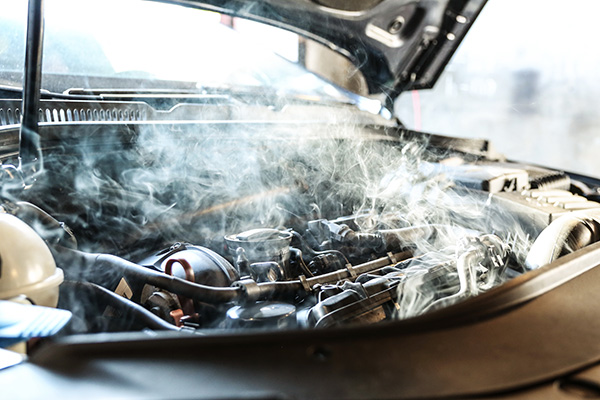
Seeing your temperature gauge climb into the red or steam billowing from under your hood is every driver’s nightmare. An overheating engine can happen unexpectedly and leave you stranded if not addressed quickly. Understanding what causes sudden overheating helps you take action before major damage occurs and ensures your car stays reliable no matter where the road takes you.
How Your Cooling System Works
Your engine produces a lot of heat while running. To keep it at a safe operating temperature, your cooling system circulates coolant through the engine, absorbing heat and carrying it to the radiator, where it’s released into the air. Components like the water pump, thermostat, radiator, cooling fan, and hoses all work together to maintain proper temperature.
When any part of this system fails, heat can build up rapidly and cause the engine to overheat.
Low Coolant Levels
Low coolant is one of the most common reasons an engine overheats suddenly. Without enough coolant circulating, heat cannot be effectively absorbed and carried away. Leaks can occur from hoses, the radiator, the water pump, or even the heater core. Over time, small leaks can slowly drain coolant levels, leaving insufficient protection for your engine.
Checking your coolant regularly and looking for puddles under your car can help catch leaks before they lead to overheating.
Thermostat Failure
The thermostat controls the flow of coolant through the engine. When working properly, it opens as the engine warms up to allow coolant to circulate. A stuck thermostat, however, can prevent coolant from moving through the system. This causes heat to build up quickly, leading to sudden and severe overheating.
A faulty thermostat often requires replacement to restore proper coolant flow and prevent future overheating incidents.
Water Pump Issues
The water pump is responsible for circulating coolant through the engine and radiator. If the water pump fails or its bearings wear out, coolant circulation slows or stops entirely. Without proper movement of coolant, heat builds up rapidly and can cause significant engine damage in a short time.
Signs of water pump problems include coolant leaks near the front of the engine, a whining noise, or visible corrosion around the pump.
Radiator Blockages or Damage
The radiator plays a critical role in releasing heat from the coolant. If the radiator becomes clogged with debris, corrosion, or sludge, it can’t cool the fluid effectively. Physical damage, like bent fins or leaks, can also reduce its ability to function. When the radiator can’t do its job, engine temperatures rise quickly, especially during heavy traffic or hot weather.
Regular inspections and flushing the cooling system at recommended intervals help keep the radiator in good shape.
Cooling Fan Malfunctions
Cooling fans help maintain airflow through the radiator when your car isn’t moving fast enough to generate natural airflow, like in stop-and-go traffic. If the fan motor fails or electrical issues prevent the fan from turning on, the radiator can't cool the engine properly. You might notice the temperature gauge rising only when idling or driving slowly.
Prompt repairs are crucial to prevent overheating during city driving or extended periods of waiting at stoplights.
Risks of Driving an Overheated Engine
Continuing to drive an overheating engine can lead to serious and costly damage. Overheating can warp the cylinder head, blow the head gasket, or even crack the engine block. These repairs can be extremely expensive and, in severe cases, may require engine replacement.
If you notice signs of overheating, it’s crucial to stop driving as soon as it’s safe, turn off the engine, and allow it to cool. Avoid opening the radiator cap while the engine is hot, as the system is pressurized and can cause burns.
How to Prevent Engine Overheating
Routine maintenance is key to preventing overheating. Regularly check coolant levels, inspect hoses for leaks or cracks, and ensure your radiator and cooling fan are in good working order. Replacing old coolant, inspecting the thermostat, and servicing the water pump at recommended intervals all help reduce the risk of overheating.
Paying attention to early warning signs like rising temperature readings, steam, or unusual smells can also prevent sudden breakdowns.
Schedule a Cooling System Check at Sherman Oaks Exclusive in Sherman Oaks, CA
If you’ve noticed signs of overheating or want to make sure your cooling system is ready for the road, the team at Sherman Oaks Exclusive in Sherman Oaks, CA, can help. Our experienced technicians will inspect your cooling system, identify any potential issues, and recommend the right solutions to keep your engine running at the right temperature. Schedule your service today for peace of mind on every drive.